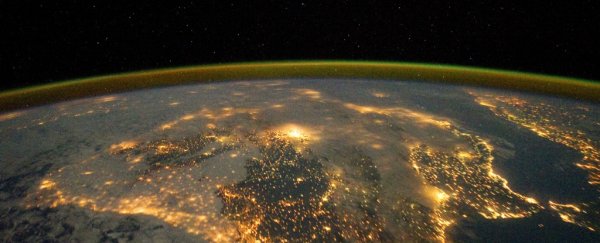We humans are a rowdy, disruptive bunch. Our very day-to-day living causes the planet to hum. Quite literally - driving and travelling, digging and construction, industry, and even sports events all contribute to a constant background hum of high-frequency seismic noise.
Now, thanks to global lockdowns due to the COVID-19 pandemic, the world is experiencing the most dramatic reduction in that anthropogenic seismic noise in recorded history.
"This quiet period is likely the longest and largest dampening of human-caused seismic noise since we started monitoring the Earth in detail using vast monitoring networks of seismometers," said seismologist Stephen Hicks of Imperial College London in the UK.
"Our study uniquely highlights just how much human activities impact the solid Earth, and could let us see more clearly than ever what differentiates human and natural noise."
We're constantly monitoring Earth's rumbles. Hundreds of seismic monitoring stations around the world can help us to predict and understand earthquake and volcanic activity, as well as record ocean swell and even atmospheric pressure.
These signals need to be teased out from the noise of human activity, which is relatively unrelenting. It subsides noticeably at specific times - weekends and nights tend to be a little quieter, as well as holidays such as Christmas, New Year and Chinese New Year - but it never actually stops.
Nor has the human noise stopped entirely now - but the reduction is vaster than any seen before, dropping by as much as 50 percent, for months on end.
The study is based on months of data, up to and including May 2020, collected from 268 seismic monitoring stations in 117 countries around the world. As countries started to implement lockdowns to prevent the spread of COVID-19, a clear pattern started to emerge, first in China in late January, followed by countries in Europe, and the rest of the world over April and March.
In all, 185 of the seismic monitoring stations recorded significant drops in the high-frequency anthropogenic signal - correlating with lockdowns in those regions.
It was most pronounced in high-density areas, such as cities, but the researchers said that the effect was noted even in low-density rural areas, and stations that are incredibly isolated, such as one roughly 150 metres (more than 400 feet) below the Black Forest in Germany.
This suggests that the anthropogenic seismic wavefield extends farther than previously thought - a very useful finding, since the Black Forest station is often used as a low-noise reference.
The hush - part of a global pandemic-induced reduction in human effects on the world dubbed by some as the anthropause - is, seismologists say, a scientific gift, for two main reasons.
The first is that, by comparing the pre-pandemic period to the COVID-19 lockdown period, scientists can characterise the noise generated by human activity better than they ever have before.
And secondly, with the hum dampened, scientists can hear with much better clarity quake signals that would have been drowned out on seismometers close to densely populated areas.
"With increasing urbanisation and growing global populations, more people will be living in geologically hazardous areas," explained seismologist and lead author Thomas Lecocq of the Royal Observatory of Belgium.
"It will therefore become more important than ever to differentiate between natural and human-caused noise so that we can 'listen in' and better monitor the ground movements beneath our feet. This study could help to kick-start this new field of study."
Activity levels in some regions around the world are returning (although we're far from out of the pandemic woods), but these months of quiet have provided an invaluable new baseline from which to assess data in the future.
The human population is going to continue to grow, which will complicate seismic monitoring further; being able to accurately characterise anthropogenic noise will make it easier to find and assess signals from the planet itself - particularly those related to seismic hazards.
"The lockdowns caused by the coronavirus pandemic may have given us a glimmer of insight into how human and natural noise interact within the Earth," Hicks said.
"We hope this insight will spawn new studies that help us listen better to the Earth and understand natural signals we would otherwise have missed."
The research has been published in Science.
